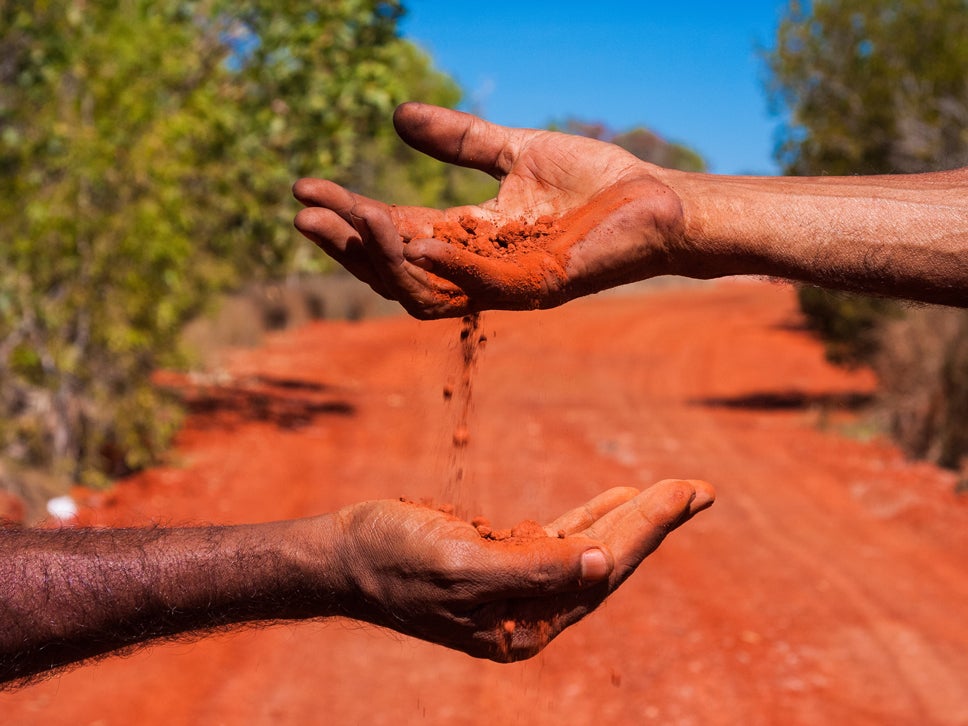14 December 2022
3 min read
#Property & Development, #Native Title & Indigenous Cultural Heritage
Published by:

The Federal Court, at first instance and on appeal, has overturned the National Offshore Petroleum Safety and Environmental Management Authority’s (NOPSEMA) acceptance of Santos’ drilling plans, on grounds that Santos did not consult traditional landowners. These decisions will have broad implications on requirements to consult with traditional landowners and, potentially, the viability of future oil and gas projects in Australia.
NOPSEMA is an independent statutory authority whose functions include considering and accepting environment plans for proposed offshore petroleum and gas activities. NOPSEMA may only accept an environment plan if it is reasonably satisfied that the proponent of the plan has consulted with persons whose interests or activities may be affected by the environment plan.
On 14 March 2022, NOPSEMA accepted an environment plan (Drilling EP) prepared by Santos, one of Australia’s biggest gas producers. The Drilling EP involved extensive drilling under the Timor Sea, approximately 300 km north of Darwin and 138 km north of the Tiwi Islands to provide a new source of natural gas.
The traditional owners of the Tiwi Islands are comprised of eight clans, one of which is the Munupi clan. Dennis Murphy Tipakalippa is an elder and traditional owner of the Munupi clan. Santos did not consult Mr Tipakalippa nor any members of the Munupi clan when preparing the Drilling EP.
Mr Tipakalippa successfully applied for a judicial review of the decision to accept the Drilling EP. The Federal Court agreed with Mr Tipakalippa that the Offshore Petroleum and Greenhouse Gas Storage (Environment) Regulations 2009 (Cth) (Regulations) required Santos to consult with him and other members of the Munupi clan because the project could have an impact on sea country and sea country resources to which the Munupi clan have traditional connections.
Santos and NOPSEMA appealed to the Full Federal Court. On 2 December 2022, the Full Federal Court upheld the Federal Court’s decision.
One of Santos’ and NOPSEMA’s primary arguments was that the Federal Court’s finding would make the relevant regulations “unworkable” because of the “sheer magnitude of the classes of persons who might need to be individually consulted”. However, the Full Federal Court disagreed, finding that “the First Nations peoples who have a traditional connection to the sea, and to the marine resources it holds, which may be affected by Santos’ activities under the Drilling EP are reasonably ascertainable”.
The Court went further, finding that “in contemporary Australia, there are a myriad of ways of contacting groups of First Nations peoples” and that “consultation with First Nations groups may not be as simple (or quick) as sending an email with a package of information”.
Santos and NOPSEMA argued for a narrow construction of the requirement to consult which would exclude Mr Tipakalippa and other members of the Munupi clan. However, the Full Federal Court rejected this approach, finding that it would not promote the principles of “ecologically sustainable development” as required by the Regulations. Rather, the Court found “ecologically sustainable development” was informed by principles of decision-making that integrated long-term social and equitable considerations and the principle of intergenerational equity. As informed by these principles, the meaning of “ecologically sustainable development” supported a wider construction of the requirement to consult.
The Full Federal Court then found that Mr Tipakalippa and the Munupi clan’s traditional connection with the marine environment around the Tiwi Islands were consistent with these principles and therefore necessitated the need to consult.
The Federal Court’s decisions will require greater levels of consultation with traditional landowners. Commenting on the Full Federal Court’s dismissal of the appeal, Federal Resources Minister Madeleine King said the decision “has provided directions on what is expected in relation to consulting Traditional Owner groups. The Government will work with NOPSEMA to ensure that robust consultation requirements are clearly communicated to industry”. Accordingly, these judicial decisions will likely be the catalyst for increased clarity on broader consultation requirements for future projects.
If you have any questions about environmental regulatory approvals or how you can engage traditional landowners in new projects and activities, please contact partners Jenny Humphris or Joseph Monaghan.
Authors: Jenny Humphris, Joseph Monaghan, Christopher Watt & Jacob Atkinson
Disclaimer
The information in this article is of a general nature and is not intended to address the circumstances of any particular individual or entity. Although we endeavour to provide accurate and timely information, we do not guarantee that the information in this article is accurate at the date it is received or that it will continue to be accurate in the future.
Published by: